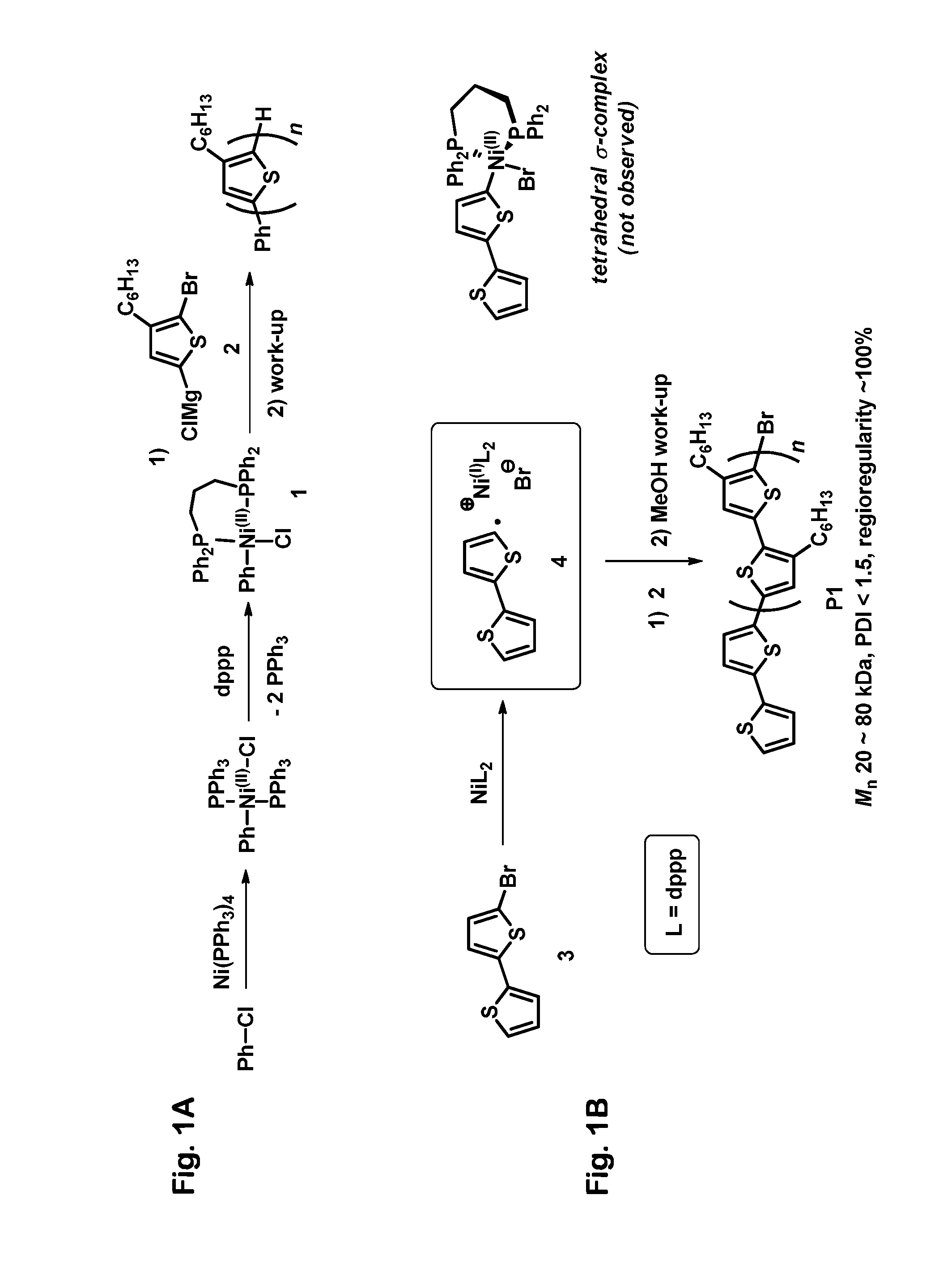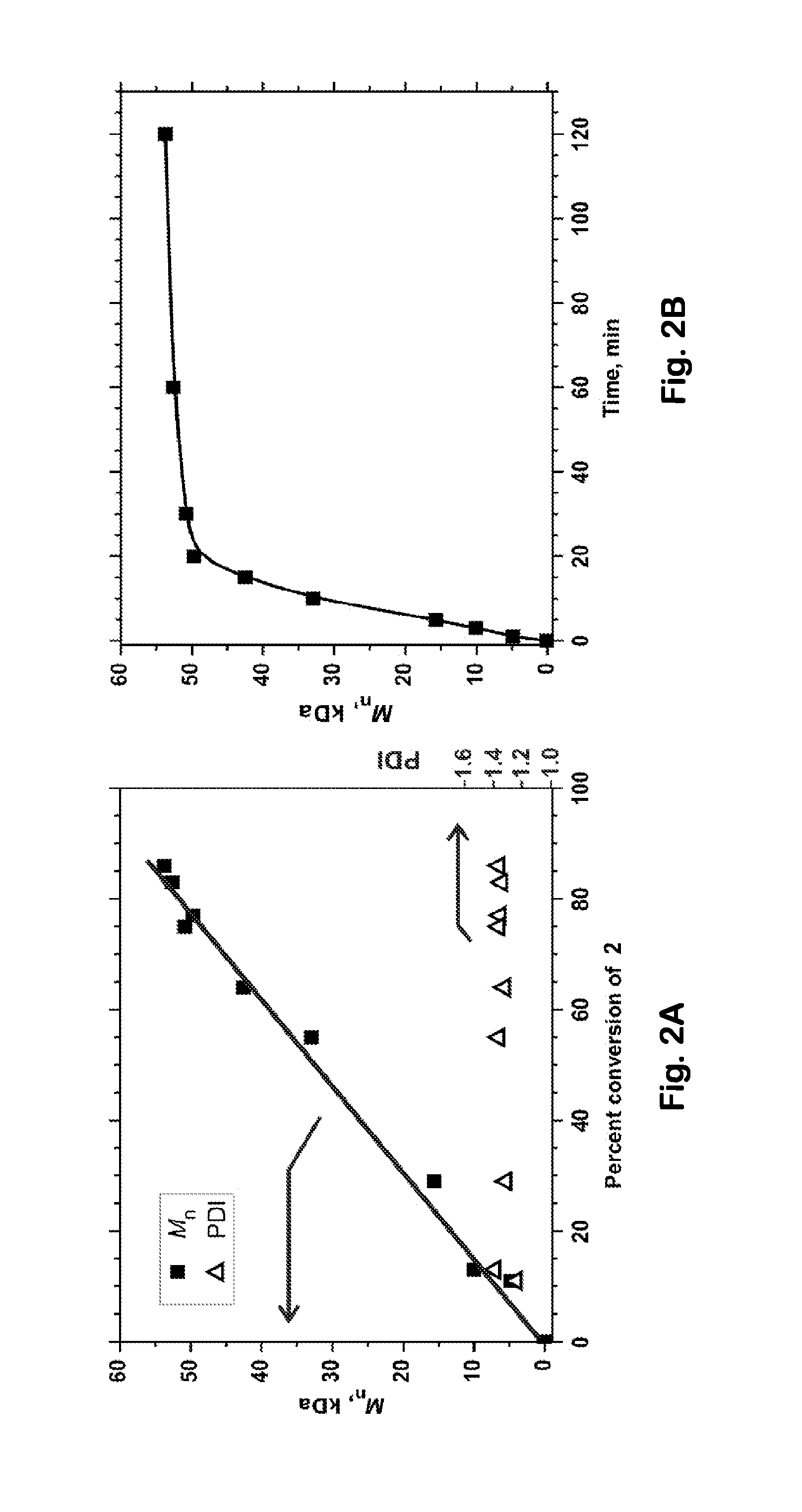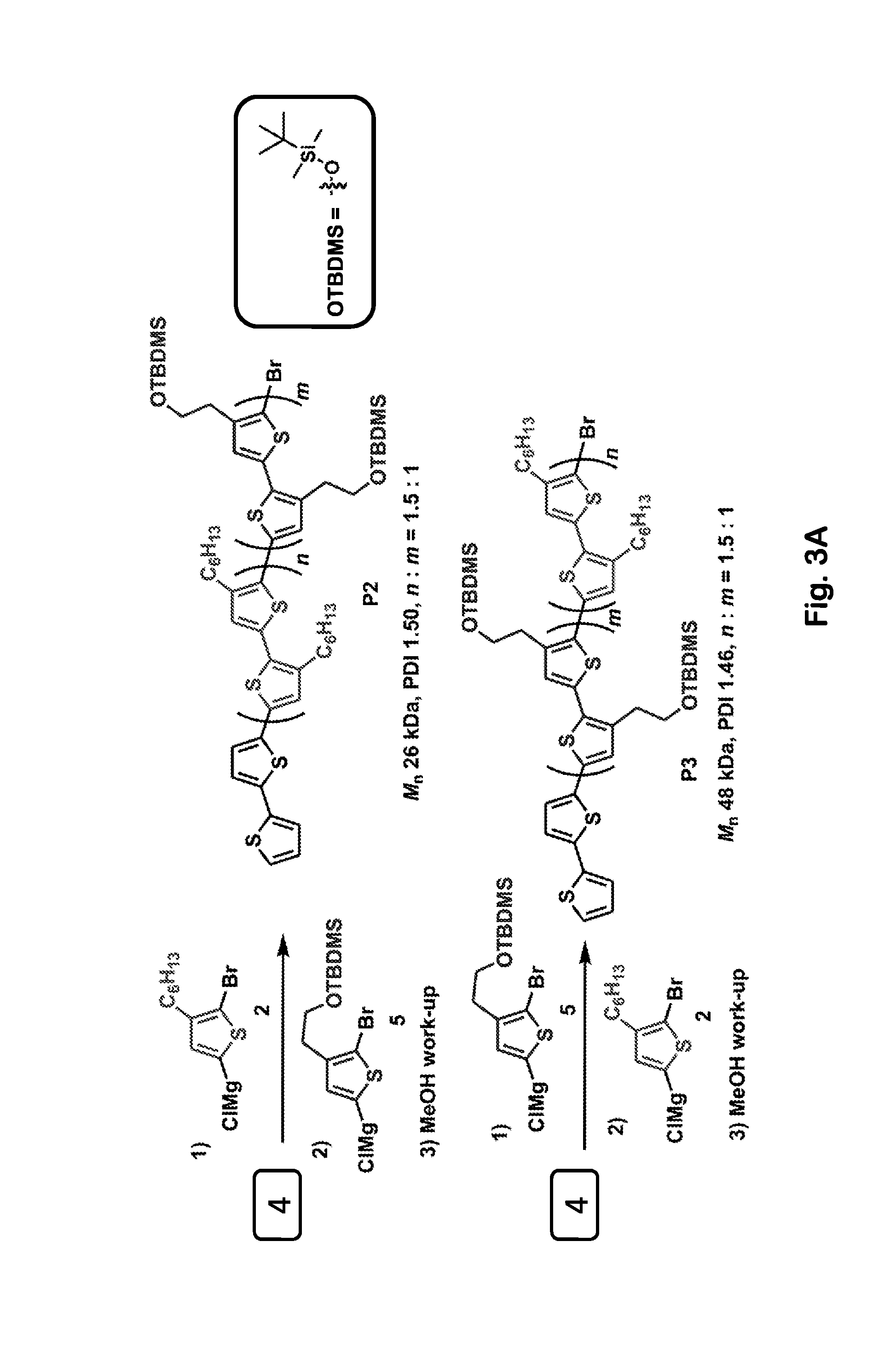Controlled Radical Polymerization, and Catalysts Useful Therein
- Summary
- Abstract
- Description
- Claims
- Application Information
AI Technical Summary
Benefits of technology
Problems solved by technology
Method used
Image
Examples
example 1
[0066]All reactions were performed under an atmosphere of dry nitrogen (unless mentioned otherwise). Melting points were determined in open capillaries and are uncorrected. Column chromatography was performed on silica gel (Sorbent Technologies, 60 Å, 40-63 μm) slurry packed into glass columns. Tetrahydrofuran (THF), ether, toluene, hexanes, and dichloromethane were dried by passing through activated alumina; and N,N-dimethylformamide (DMF) by passing through activated molecular sieves; using a PS-400 Solvent Purification System from Innovative Technology, Inc. The water content of the solvents was periodically controlled by Karl Fischer titration (using a DL32 coulometric titrator from Mettler Toledo). Isopropylmagnesium chloride (2.0 M solution in THF) was purchased from Acros Organics. All other reagents and solvents were obtained from Aldrich or from Alfa Aesar, and were used without further purification. 1H NMR spectra were recorded at 250 and 400 MHz and are reported in ppm do...
example 2
[0067]The Ni(dppp)2 reagent used in these reactions can be prepared, for example, by the method of B. Corain el al., J. Organomet. Chem. 1971, 28, 133-136. Briefly, to a vigorously stirred mixture of 1.50 g (5.84 mmol) of nickel(II) bis(acetylacetonate) (Ni(acac)2) and 4.82 g (11.7 mmol) of 1,3-bis(diphenylphosphino)propane (dppp) in 80 ml of ether and 15 ml of toluene, a solution of i-Bu3Al (19.8 ml of 1.0 M solution in hexanes, 19.8 mmol) was added slowly over a 1 h period (by syringe pump) under Ar atmosphere. The resulting mixture was stirred at room temperature for 24 h. During this period the solution's color changed from bright green to bright red. The reaction mixture was left unperturbed for an additional 24 h, and the resulting precipitate was filtered under argon, and washed with excess ether to give 3.5 g (68%) of the product as a bright-orange solid material, mp 281° C., decomp. (lit. mp 281-283° C.).
example 3
[0068]An equimolar mixture of Compound 3 and Ni(dppp)2 was stirred in toluene at 40° C. The reaction was monitored by 31P NMR, which allows Ni(dppp)2 to be identified easily by its characteristic singlet at 12.8 ppm. We were disappointed that initially we did not observe any significant new signals; those initial results seemed to indicate that no reaction was occurring, consistent with reports in the earlier literature. We nevertheless allowed the reaction to continue running for longer times, and we noticed that the intensity of the 12.8 ppm singlet gradually decreased, almost disappearing after 72 hours. If the decreasing 12.8 ppm signal had resulted simply from thermal degradation of Ni(dppp)2, then we should have observed new 31P NMR signals corresponding to the degradation products, but no such new signals were seen. These observations led us to conclude that Compound 3 and Ni(dppp)2 had reacted with one another to produce a stable paramagnetic product that would not be detect...
PUM
| Property | Measurement | Unit |
|---|---|---|
| Fraction | aaaaa | aaaaa |
Abstract
Description
Claims
Application Information
 Login to View More
Login to View More - R&D
- Intellectual Property
- Life Sciences
- Materials
- Tech Scout
- Unparalleled Data Quality
- Higher Quality Content
- 60% Fewer Hallucinations
Browse by: Latest US Patents, China's latest patents, Technical Efficacy Thesaurus, Application Domain, Technology Topic, Popular Technical Reports.
© 2025 PatSnap. All rights reserved.Legal|Privacy policy|Modern Slavery Act Transparency Statement|Sitemap|About US| Contact US: help@patsnap.com



